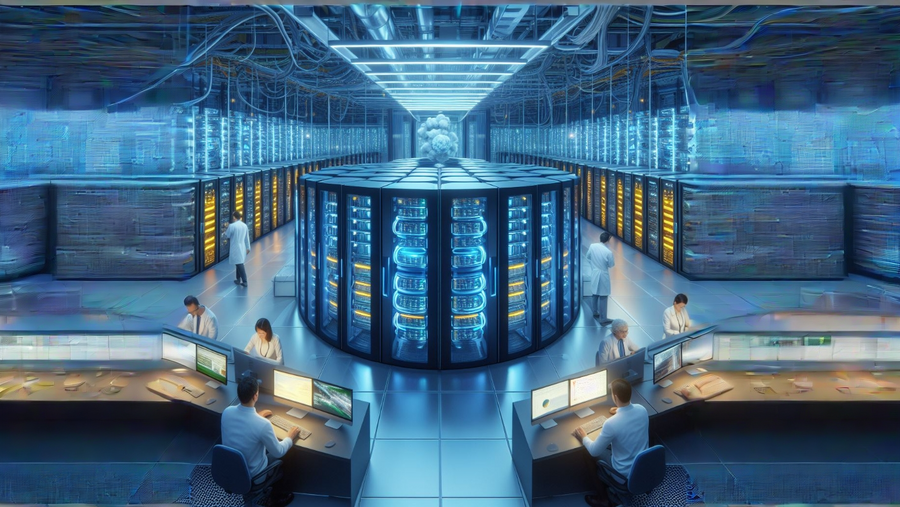Scientific & High-Performance Computing

Scientific computing is the application of mathematical and computer-aided methods to solve or simulate complex scientific problems. It is an interdisciplinary field that is applied in various scientific disciplines such as engineering, physics, chemistry, biology, medicine, economics, social sciences and many others.
Scientific computing involves mathematical-physical modeling in which real phenomena are described by differential equations, partial differential equations or other mathematical models to describe the system behavior. On the basis of these mathematical models, suitable numerical solution methods are selected whose properties for a correct solution process have been theoretically checked and validated in advance using methods of numerical analysis. Known numerical solution methods include deterministic methods such as the finite difference method, the finite volume method and the finite element method, as well as stochastic methods such as Monte Carlo simulation.
For these computer simulations, scientific computing generally uses particularly powerful computer systems to solve the complex mathematical models. Researchers can use the computer models to simulate the behavior of systems under different input conditions. This makes it possible, for example, to specifically optimize the design of technical systems or determine the influence of manufacturing tolerances on the end product using these computer models alone, a so-called “digital twin” of the real system. Recently, methods based on artificial intelligence have even been increasingly used for this purpose.
In scientific computing, particularly realistic models often require high computing power. Scientific computing therefore often requires the use of high-performance computers, supercomputers or distributed computing systems, in which special hardware components such as graphics accelerator cards are often used to carry out complex simulations that have to process large amounts of data or are very computationally intensive.
To ensure that the simulations on these high-performance computers are realistic and reliable, methods are used to validate and verify the simulation models to ensure that the models and their solution procedures are implemented correctly and that the results obtained match experimental data or theoretical predictions.
The diverse fields of application of scientific computing include, for example, the simulation of electromagnetic fields, heat transport processes, fluid and liquid flows, mechanical structures, e.g. in crash simulations or strength calculations, climate models, chemical molecule assemblies or financial mathematical simulations and many other areas of natural and engineering sciences.
Today, scientific computing plays a crucial role in expanding our understanding of complex systems and phenomena, enabling scientists to make predictions, plan experiments and gain new insights.
Chairs and research groups
The following computer science chairs and research groups are active in the “Scientific & High-Performance Computing” focus area:
Applied computer science (Prof. Andreas Frommer, Prof. Bruno Lang)
Scientific computing and high-performance computing (Prof. Matthias Bolten, Prof. Peter Zaspel)
Applied and Computational Mathematics (Prof. Matthias Ehrhardt, Prof. Michael Günther)
Theoretical electrical engineering (Prof. Markus Clemens)
and in cast:
Data Analytics
